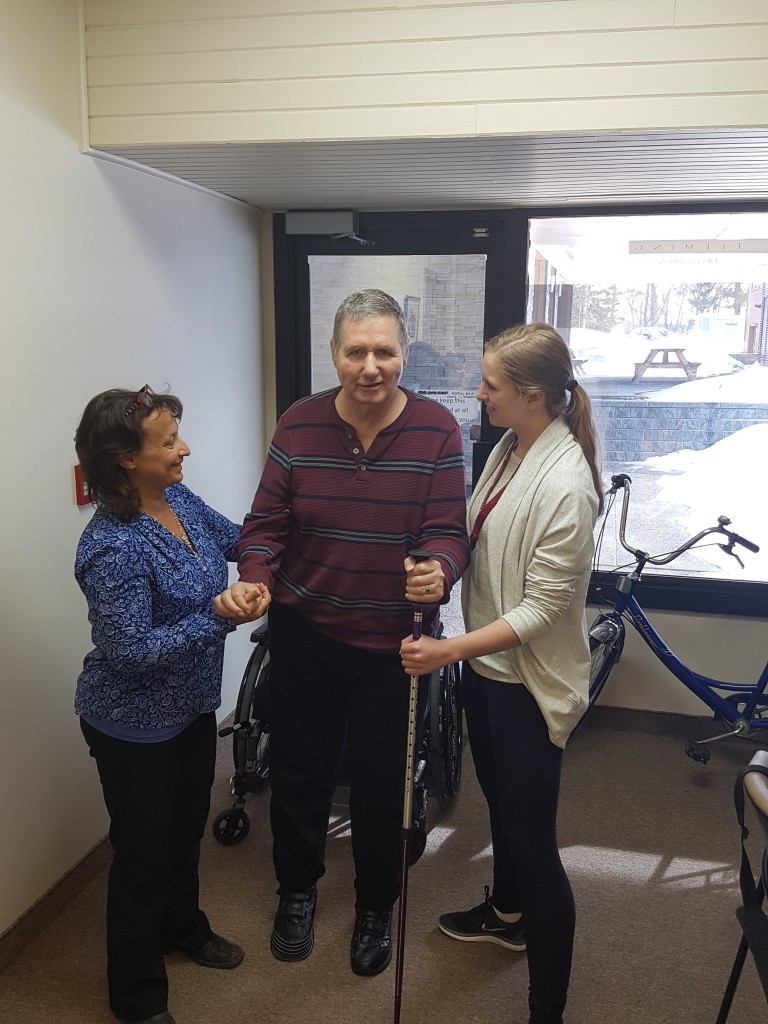Home / Conditions / Balance Assessments and Treatment
Balance Assessments and Treatment

Balance is the ability to maintain your equilibrium over your base of support, for example your feet. If you are unable to maintain your balance in a seated or standing position, you are at higher risk of falls and therefore at higher risk for injury. Balance is complex as it requires input from several body systems including the somatosensory, proprioceptive, vestibular and visual systems.
The information from all three systems is integrated and should result in the necessary balance reactions including activating the appropriate muscles to maintain your position against gravity and not fall over. In different situations, a person will rely on certain systems more than others to give them information on how to maintain their balance.
Balance can be affected by many different conditions including stroke, Parkinson’s, aging, orthopedic injuries and overall de-conditioning. Your physiotherapist will use objective measurements to look at your static (fixed) and dynamic (in motion) balance in different postures and positions to determine the appropriate treatment approach for your individual situation.
Treatment may include:
- recommending an appropriate walking aid (walker, cane, etc.)
- practicing walking with or without an aid, indoors and outdoors, and on different surfaces
- functional mobility training (such as getting up from sitting)
- strength exercises
- postural/positioning exercises
- activities to improve your balance reactions
- static balance activities (for example standing on one foot, eyes closed, walking on uneven surfaces)
- dynamic balance activities (for example sideways walking, walking a straight line)
Image references:
- Action Potential Rehabilitation, 2020.
This website provides general information about our services and conditions treated. It is not intended to be used for self-assessment or treatment, and is not a substitute for an individualized treatment plan developed by a registered physiotherapist.
By the Action Potential Rehabilitation Staff
Page last reviewed: June 2, 2023
